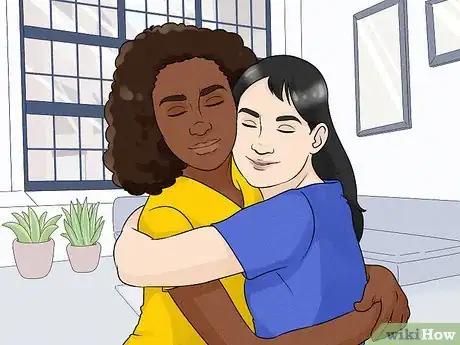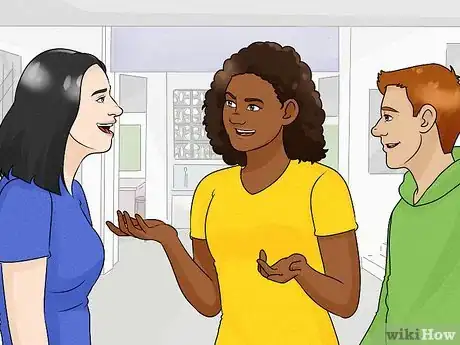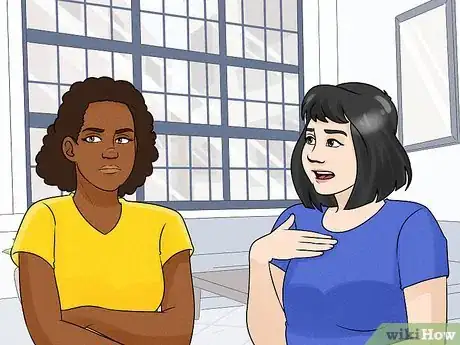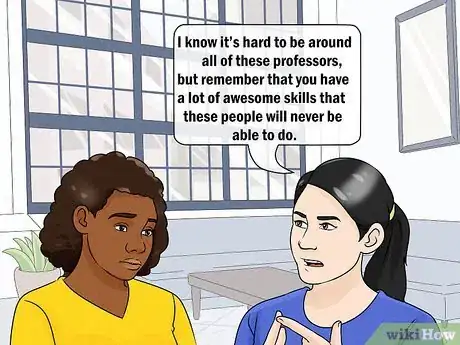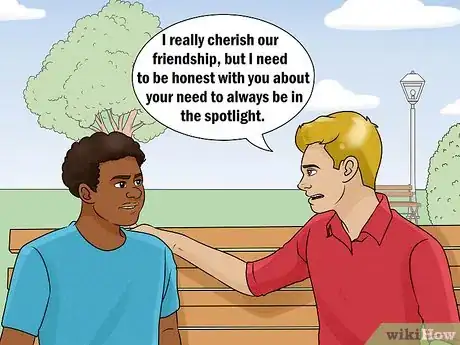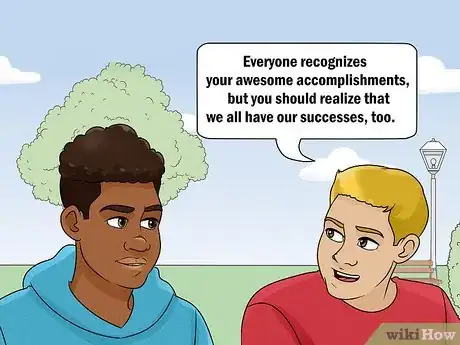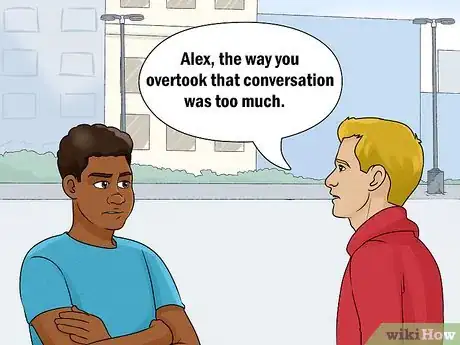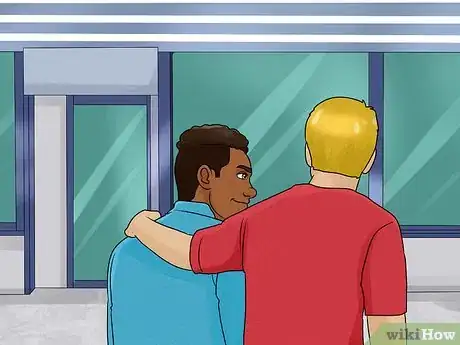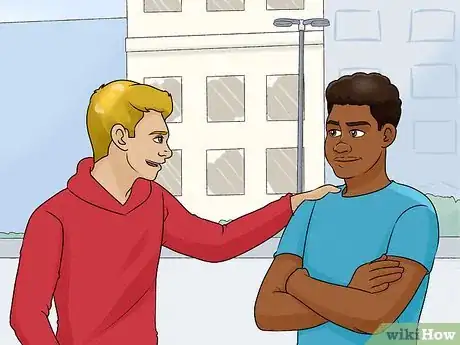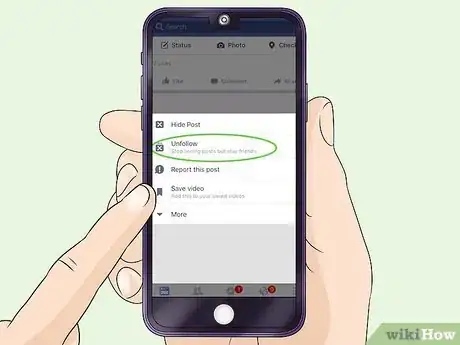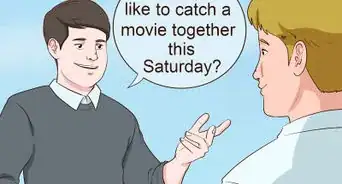This article was co-authored by Supatra Tovar, PsyD, RD. Dr. Supatra Tovar is a Licensed Clinical Psychologist (PSY #31949), Registered Dietitian, Fitness Expert, and the Owner of Dr. Supatra Tovar and Associates. Dr. Tovar has worked in the fields of health education, clinical dietetics, and psychology. With over 25 years of holistic wellness experience, she practices Holistic Health Psychotherapy. She combines her psychology, diet, and fitness knowledge to help those struggling with depression, weight gain, eating disorders, life transitions, and relationships. Dr. Tovar holds a BA in Environmental Biology from The University of Colorado Boulder, an MS in Nutrition Science from California State University, Los Angeles, and a PsyD in Clinical Health Psychology from Alliant International University, Los Angeles.
There are 9 references cited in this article, which can be found at the bottom of the page.
This article has been viewed 93,332 times.
Every person likes being the center of attention every now and again. However, dealing with a friend who always hogs the limelight, or is narcissistic, can be challenging. [1] It can stress your relationship with the person and make you feel as though you don’t matter. It's important to restore some balance to this friendship or it might not be something you can continue to live with.
Steps
Accepting Your Friend
-
1Love the positive—and the negative. No person is all sunshine and roses and every friendship has many layers. Being someone’s friend means accepting every facet of his or her personality. Accept that your friend needs to be the center of attention, but also that they have other wonderful qualities.[2]
- Focus on your friend’s positive qualities as much as you can, even in situations where the person needs to be in the spotlight. Consider that your friend may feel threatened by an accomplishment of yours, and so acts out as a confidence booster.[3]
- Remember that as long as your friend’s need for attention isn’t harming you or another person, you can accept his or her need to be the center of attention.[4]
- Avoid trying to change your friend. If you feel the need to change someone, then it might be best to not engage in the friendship.[5]
-
2Allow your friend to be themselves. If your friend constantly needs to be the center of attention, there may be some underlying issues about which you don’t know.[6] Avoid making the person feel uncomfortable by shouting or talk down to your friend. If you point out that they never shut up or try to compete for attention, they may feel that you're cramping their style.
- Manage your expectations about your friend. If you don’t think they can stop taking the spotlight, keep this in mind whenever you are with the person. Not expecting the person to completely change may help you enjoy the friendship more.[7]
Advertisement -
3Revisit the reasons you became friends. No matter how long you’ve been friends, there was something that sparked your friendship. If you are having a hard time with your friend’s need for attention, think about what bonds you share to remind yourself why you’re friends.
- Remind yourself of what you have in common. Do your both love exotic cuisines or going for bike rides? Draw on these interests as well as your friend’s other qualities to shift focus away from their need for attention.
-
4Have empathy. In many cases, the need to be the center of attention is related to a deeper weakness. Consider what causes your friend’s need to be in the spotlight. This may help you be more empathetic with their behavior and even cue you into helping them get over their weaknesses.[8]
- See if you notice specific situations in which your friend needs to be the center of attention. For example, it could be when your friend is around a co-ed crowd or with people who are more successful.
- Talk to your friend honestly—and gently—about any patterns you see. You may find out that your friend just needed someone to talk to and some tips on how to navigate difficult situations.
-
5Highlight your friend’s individuality. If your friend has certain weaknesses, remind them about other unique characteristics they person possess. This may help them relax and not need to be the center of attention. In fact, this step may make your friendship stronger.[9]
- Say things to bolster your friend in situations that may cause anxiety. For example, you could say, “I know it’s hard to be around all of these professors, but remember that you have a lot of awesome skills that these people will never be able to do.” You can also highlight your friend’s individuality in group situations. For example, say “You know, Chris left his PhD program to start a successful bakery. He’s won several prestigious awards for his breads.”
Confronting Your Friend about the Behavior
-
1Be honest about your feelings. Honestly is the foundation of any strong friendship. If your friend’s behavior is harming your friendship or other people, tell your friend that their behavior is offensive. This may get them to realize that they are alienating friends and others.[10]
- Tell your friend you value them and that it’s important for you to be honest. You can say, “I really cherish our friendship, but I need to be honest with you about your need to always be in the spotlight.”
-
2Keep your comments positive. Broach your friend’s behavior in a non-confrontational manner. This can help maintain the friendship and may also keep your friend from feeling badly about themselves. Remember that they may not be purposely stealing the spotlight.[11]
- Emphasizing community and using disappointment is a good tactic to get your friend to realize their shortcoming. It’s also far more effective than anger or negativity.[12]
- Say, “Sometimes you have this need to be in the spotlight and it comes to the detriment of everyone else in the room. Everyone recognizes your awesome accomplishments, but you should realize that we all have our successes, too. We’d like to be able to share those with you and others in the group.”
-
3Let your friend know when the behavior has gone too far. Your friend may completely take over situations with their need to be in the spotlight. If this happens, explain to your friend that their behavior crossed the boundaries of acceptability.[13]
- Avoid embarrassing your friend if possible. Gently explain why their behavior is unacceptable in private. For example, say, “Alex, the way you overtook that conversation was too much. Jack was telling us about his promotion and you took over about your own work successes. You should be more sensitive and think about how your behavior affects the rest of us.”
-
4Break tension with sarcasm. If your friend’s behavior is making others uncomfortable, consider distracting everyone by making a sarcastic remark. This can help break the tension and put everyone at ease while giving your friend a hint that their behavior has gone too far.
- Say, “well, now that we all know Max is a superstar, let’s move on to what we’re going to eat.” This can smooth over problems and cue your friend about his or her inappropriate behavior.
-
5Be supportive of your friend. Even if you don’t agree with your friend’s behavior, try and give the person unconditional support. You may be unaware of underlying issues or something else that sparked your friend’s need for attention.[14]
- Offer support in a group by saying “I understand why Jack’s promotion made Max feel insecure, and maybe we should try and be more inclusive in celebrating everyone.”
- Support your friend individually by saying, “I understand why Jack’s promotion made you insecure, but we should have been able to celebrate him without you taking over the conversation.”
-
1Determine the source of your feelings. Your feelings about your friend’s need to be the center of attention may stem from your own insecurities or how the person makes you feel. Considering why your friend’s behavior bothers you might help you disengage from your feelings and get through being with the person.
- Ask yourself honest questions about your feelings. For example, you might not like the way your friend behaves because it makes you feel like a lesser person. Your friend’s behavior might also embarrass you in social settings.
-
2Limit contact with your friend. If your friend’s need to be the center of attention is too much, it may be best to either limit the time you spend together or avoid the person altogether. This may help relieve any stress you feel about the friendship and help you enjoy time with the person.[15]
- Consider limiting personal contact and any social media you follow. For example, you might find that not having to see constant self-aggrandizing Facebook posts helps you tolerate your friend in person.
- Remember to keep your relationship civil and polite. This person is your friend and you may not want to hurt the person. You can say, “I’m sorry, I’m just really busy with work and don’t have a lot of time right now.”
-
3End the friendship. If your friend continues to need to be the center of attention despite your best efforts, consider whether this friendship is worth it. Living in the shadow of someone else, especially if you're expected to back them up without your feelings being reciprocated, can take its toll on your confidence and enjoyment. Friendships take work but they're not supposed to have constant drama or be a constant effort. You may find that life is more enjoyable without this person in your life.[16]
- Be as kind and honest as possible when ending the friendship. For example, saying, “I’ve noticed a change in our friendship in the last few months. I think it’s sad that it’s come to an end, but I wish you nothing but the best in the future.” That will always be better than, “your need to hog the spotlight annoys me and I don’t want to be friends anymore.”[17]
- Meet the person if you are in the same city and explain your feelings. If you are in different cities, send the person a kind, handwritten note. This can help you feel confident that you’ve considered your decision and shows the other person that you have enough respect to take that time and write to them.
- Keep your reasons focused on yourself and not on the other person. Say, “It’s hard for me to witness what you’re going through. I need to end our friendship and think that it’s the best decision for both of us.” This signals the person that the problem is with you and not them.[18]
Expert Q&A
-
QuestionWhat do you do when your friend doesn't give you attention?
 Supatra Tovar, PsyD, RDDr. Supatra Tovar is a Licensed Clinical Psychologist (PSY #31949), Registered Dietitian, Fitness Expert, and the Owner of Dr. Supatra Tovar and Associates. Dr. Tovar has worked in the fields of health education, clinical dietetics, and psychology. With over 25 years of holistic wellness experience, she practices Holistic Health Psychotherapy. She combines her psychology, diet, and fitness knowledge to help those struggling with depression, weight gain, eating disorders, life transitions, and relationships. Dr. Tovar holds a BA in Environmental Biology from The University of Colorado Boulder, an MS in Nutrition Science from California State University, Los Angeles, and a PsyD in Clinical Health Psychology from Alliant International University, Los Angeles.
Supatra Tovar, PsyD, RDDr. Supatra Tovar is a Licensed Clinical Psychologist (PSY #31949), Registered Dietitian, Fitness Expert, and the Owner of Dr. Supatra Tovar and Associates. Dr. Tovar has worked in the fields of health education, clinical dietetics, and psychology. With over 25 years of holistic wellness experience, she practices Holistic Health Psychotherapy. She combines her psychology, diet, and fitness knowledge to help those struggling with depression, weight gain, eating disorders, life transitions, and relationships. Dr. Tovar holds a BA in Environmental Biology from The University of Colorado Boulder, an MS in Nutrition Science from California State University, Los Angeles, and a PsyD in Clinical Health Psychology from Alliant International University, Los Angeles.
Licensed Clinical Psychologist (PSY #31949) Talk to them about it. Try to approach the conversation from a place of sympathy, compassion, and respect. Just let them know that you feel like they're not paying enough attention to you, and try to come to some kind of understanding. If you never talk to them about it, how are they ever going to fix the problem?
Talk to them about it. Try to approach the conversation from a place of sympathy, compassion, and respect. Just let them know that you feel like they're not paying enough attention to you, and try to come to some kind of understanding. If you never talk to them about it, how are they ever going to fix the problem?
References
- ↑ http://www.drjudithorloff.com/Free-Articles/How-To-Deal-With-A-Narcissist.htm
- ↑ Supatra Tovar, PsyD, RD. Licensed Clinical Psychologist (PSY #31949), Registered Dietitian, & Fitness Expert. Expert Interview. 6 October 2021.
- ↑ Supatra Tovar, PsyD, RD. Licensed Clinical Psychologist (PSY #31949), Registered Dietitian, & Fitness Expert. Expert Interview. 6 October 2021.
- ↑ http://www.drjudithorloff.com/Free-Articles/How-To-Deal-With-A-Narcissist.htm
- ↑ https://www.scienceofpeople.com/how-to-deal-with-narcissists/
- ↑ http://observer.com/2016/01/how-to-deal-with-a-narcissist-5-secrets-backed-by-research/
- ↑ http://www.drjudithorloff.com/Free-Articles/How-To-Deal-With-A-Narcissist.htm
- ↑ https://www.scienceofpeople.com/how-to-deal-with-narcissists/
- ↑ http://tinybuddha.com/blog/25-ways-to-be-a-true-friend/
- ↑ https://www.scienceofpeople.com/how-to-deal-with-narcissists/
- ↑ Supatra Tovar, PsyD, RD. Licensed Clinical Psychologist (PSY #31949), Registered Dietitian, & Fitness Expert. Expert Interview. 6 October 2021.
- ↑ http://observer.com/2016/01/how-to-deal-with-a-narcissist-5-secrets-backed-by-research/
- ↑ https://www.scienceofpeople.com/how-to-deal-with-narcissists/
- ↑ Supatra Tovar, PsyD, RD. Licensed Clinical Psychologist (PSY #31949), Registered Dietitian, & Fitness Expert. Expert Interview. 6 October 2021.
- ↑ /2016/01/how-to-deal-with-a-narcissist-5-secrets-backed-by-research/
- ↑ http://observer.com/2016/01/how-to-deal-with-a-narcissist-5-secrets-backed-by-research/
- ↑ http://www.huffingtonpost.com/debra-fine/conscious-relationships_b_4214649.html
- ↑ http://www.cbsnews.com/news/how-to-spot-and-end-a-toxic-friendship/
